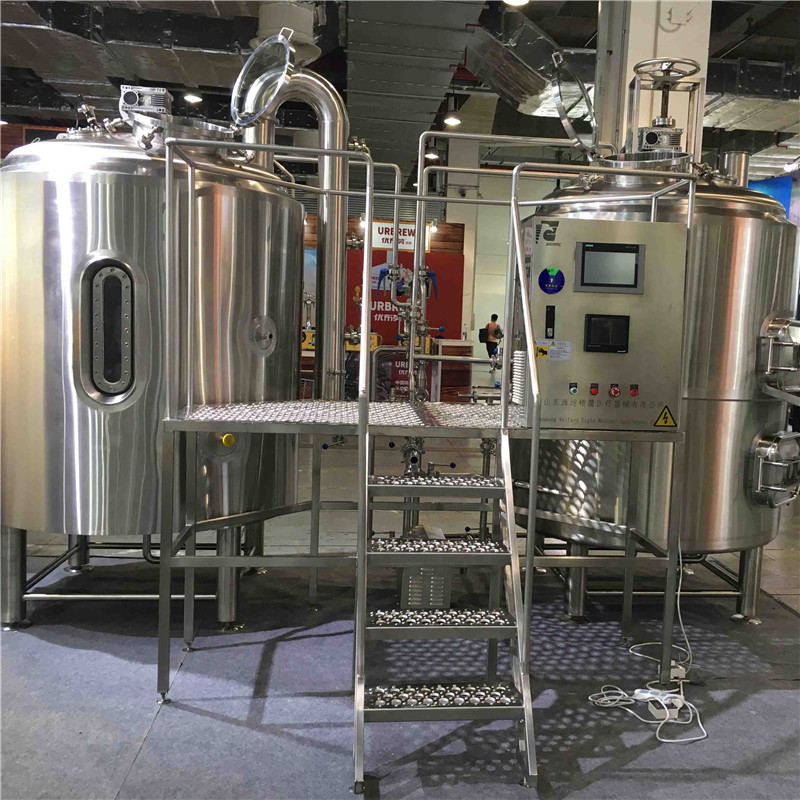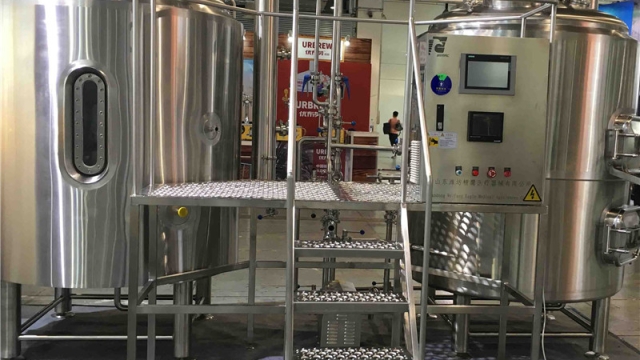Welcome to the world of brewing! If you’ve ever dreamed of becoming a master brewer or simply want to try your hand at crafting your own beer, then learning about brewery equipment is an essential first step. Brewery equipment encompasses the tools and machinery needed to create the magic that happens behind the scenes of every successful brewery.
But what exactly is brewery equipment? In simple terms, it refers to the specialized hardware and machinery used in the beer brewing process. From the moment the grains are mashed to the final kegging or bottling, brewery equipment plays a crucial role in ensuring consistency, quality, and efficiency.
In this comprehensive brewery equipment guide, we will delve into the different types of equipment, their functions, and their significance in both home brewing setups and professional microbreweries. Whether you’re a newbie looking for a basic beer brewing kit or a seasoned brewer seeking to expand your production capabilities, this guide will provide you with the essential knowledge needed to unleash the magic of brewing. So, grab a pint and let’s dive into the world of brewery equipment!

Introduction to Brewery Equipment
Brewery equipment plays a vital role in the beer brewing process, enabling beer enthusiasts and professionals alike to create their own delicious brews. Whether you’re setting up a microbrewery or simply looking to enhance your home brewing setup, having the right brewery equipment is essential. In this article, we will explore the key components of brewery equipment, providing you with a comprehensive guide to help unleash the magic of beer making.
To start off, let’s delve into what exactly constitutes brewery equipment. From large-scale commercial breweries to small-scale home setups, brewery equipment encompasses a wide range of tools and machinery that facilitate the beer production process. It includes everything from fermentation vessels and mash tuns, to pumps, kegs, and bottling systems.
For those aspiring to establish their own microbrewery or brewpub, having the appropriate microbrewery equipment is crucial. This specialized equipment is designed to handle smaller batches of beer, making it suitable for those working on a more intimate scale. It typically includes compact brewing systems, conical fermenters, and precise temperature control mechanisms to ensure consistent and high-quality brews.
Whether you’re a seasoned brewer or just starting out, having the right beer brewing equipment is essential for achieving the best results. From stainless steel brew kettles to immersion chillers and hydrometers, each piece of equipment serves a specific purpose in the brewing process. By understanding how each component works and fits into the overall brewing setup, you can optimize your brewing experience and create your very own magical elixir.
Stay tuned for the next sections where we’ll delve deeper into the specific brewery equipment you’ll need to create your own craft beer wonders!
2. Types of Brewery Equipment
In the world of brewing, having the right equipment is essential for producing quality beers. Brewery equipment refers to the machinery, tools, and materials necessary to brew beer on any scale, from a small microbrewery to a large commercial brewery. Understanding the various types of brewery equipment is crucial for any aspiring brewer.
- Beer Brewing Equipment
-
Mashing Equipment: Mashing is the process of extracting sugars from malted grains. To accomplish this, brewers utilize mashing equipment such as mash tuns and hot liquor tanks. A mash tun is a vessel where the mashing process takes place, allowing the grains to soak in hot water, releasing their sugars. Hot liquor tanks store and heat the water used in mashing, ensuring it reaches the desired temperature.
-
Fermentation Equipment: After mashing, the wort (unfermented beer) needs to ferment to develop its distinct flavor and alcohol content. Fermentation equipment includes fermentation vessels, such as fermenters or open fermentation tanks. These vessels provide a controlled environment for yeast to convert sugars into alcohol and carbon dioxide. Fermentation locks, airlocks, and temperature control systems are also essential for monitoring and regulating the fermentation process.
-
Packaging Equipment: Once the brewing and fermentation processes are complete, it’s time to package the beer. Packaging equipment includes bottling machines, canning lines, kegs, and labeling machines. These tools ensure that the finished beer is properly sealed, preserved, and ready for distribution. Efficient packaging equipment is vital for maintaining the beer’s quality and extending its shelf life.
By understanding the different types of brewery equipment, brewers can create high-quality beers with consistent taste profiles. From mashing equipment for extracting sugars, to fermentation equipment for proper fermentation, and packaging equipment for the final presentation, each piece of brewery equipment plays a crucial role in the beer-making process. So, whether you’re starting a small microbrewery or simply brewing beer at home, investing in the right brewery equipment is the first step in unleashing the magic of brewing!
3. Choosing the Right Brewery Equipment
When it comes to starting your own brewery, the equipment you choose can make all the difference. The right brewery equipment not only ensures the quality and consistency of your beer but also plays a crucial role in the overall brewing process. Here’s a guide to help you choose the perfect brewery equipment for your needs.
-
Understanding the Basics: Before diving into the world of brewery equipment, it’s important to understand what exactly it entails. Brewery equipment refers to the tools and machinery used for brewing beer, from the initial stages of mashing and boiling to the final steps of fermentation and packaging. It includes items such as brew kettles, fermentation tanks, cooling systems, pumps, and kegging systems. Each piece of equipment has a specific function and contributes to the overall brewing process.
-
Consider Your Brewing Capacity: Before making any equipment purchases, consider the scale at which you plan to operate your brewery. If you’re starting with a small microbrewery, investing in compact and versatile equipment might be the way to go. On the other hand, if you’re envisioning a larger production capacity, you’ll need to look into more robust and industrial-grade equipment. Understanding your brewing capacity will help you choose the right size and specifications for your brewery equipment.
-
Quality and Reliability: When it comes to brewery equipment, quality and reliability are paramount. Investing in well-built, durable equipment ensures that your brewing process runs smoothly and minimizes the risk of downtime or equipment failure. Look for reputable suppliers and manufacturers who have a track record of providing reliable brewery equipment. Remember, the longevity and success of your brewery depend on the quality of the equipment you choose.
By carefully considering the basics, your brewing capacity, and the quality and reliability of equipment, you’ll be well on your way to choosing the perfect brewery equipment for your brewing endeavors. Remember, the right equipment is the foundation of any successful brewery, so take the time to research and invest wisely in equipment that suits your specific needs.
